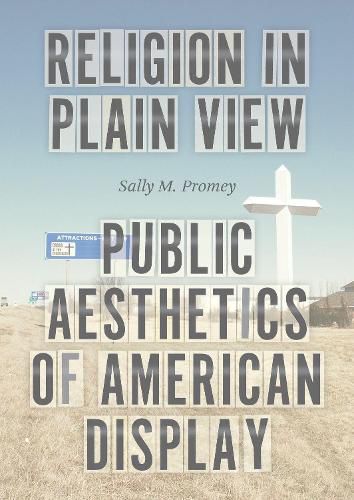Readings Newsletter
Become a Readings Member to make your shopping experience even easier.
Sign in or sign up for free!
You’re not far away from qualifying for FREE standard shipping within Australia
You’ve qualified for FREE standard shipping within Australia
The cart is loading…






A revelatory critique of public display in the United States.
In Religion in Plain View, Sally M. Promey analyzes religion's visible saturation of American public space and the histories that shaped this exhibitionary aesthetics. In street art, vehicle decor, signs, monuments, architecture, zoning policy, and more, Promey exposes American display's merger of evangelicalism, capitalism, and imperialism. From this convergence, display materializes a distinctly American drive to advertise, claim territory, invalidate competitors, and fabricate a tractable national heritage. Charting this aesthetics' strategic work as a Protestant technology of White nation formation, Religion in Plain View offers a dynamic critique of the ways public display perpetuates deeply ingrained assumptions about the proper shape of life and land in the United States.
$9.00 standard shipping within Australia
FREE standard shipping within Australia for orders over $100.00
Express & International shipping calculated at checkout
A revelatory critique of public display in the United States.
In Religion in Plain View, Sally M. Promey analyzes religion's visible saturation of American public space and the histories that shaped this exhibitionary aesthetics. In street art, vehicle decor, signs, monuments, architecture, zoning policy, and more, Promey exposes American display's merger of evangelicalism, capitalism, and imperialism. From this convergence, display materializes a distinctly American drive to advertise, claim territory, invalidate competitors, and fabricate a tractable national heritage. Charting this aesthetics' strategic work as a Protestant technology of White nation formation, Religion in Plain View offers a dynamic critique of the ways public display perpetuates deeply ingrained assumptions about the proper shape of life and land in the United States.